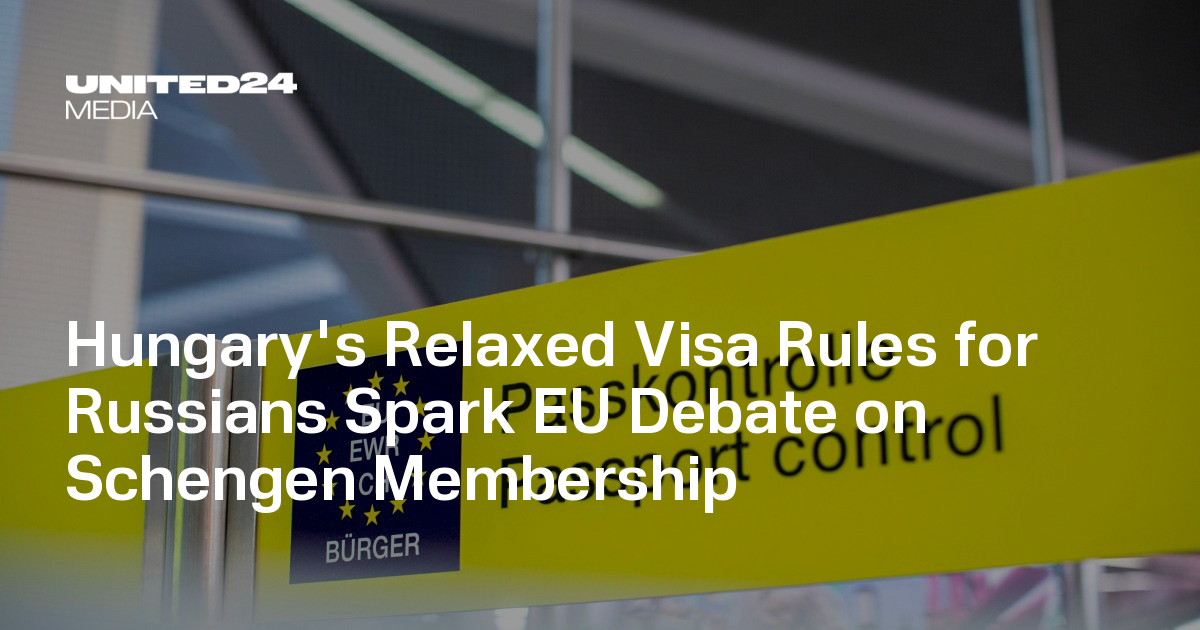The European Union is considering the possibility of expelling Hungary from the Schengen Zone due to its recent decision to ease visa restrictions for Russian and Belarusian citizens.
A growing backlash has emerged against Hungary’s move to simplify visa requirements, which includes a new national card program for extended stays and work permits. This policy change, which followed a visit to Moscow by Hungarian Prime Minister Viktor Orbán, has drawn sharp criticism from EU lawmakers.
The lawmakers have also suggested that if Hungary does not amend its policy, the European Commission and EU representatives should consider new measures to protect European citizens. This could include increased border controls at Hungary’s borders and the possibility for other EU states to not recognize Hungarian visas.
The letter, which has collected nearly 70 signatures, including from former Belgian and Irish prime ministers, highlights the escalating tensions within the EU over Hungary’s foreign policy decisions.
[Edit typo.]



First of all, no one has said that that the Schengen countries shouldn’t help Russian dissidents and those who flee the Putin regime. If the EU can improve that (and I am sure it can) we should do that. I fully supported that. I am certain, however, that this is not what Mr. Orban has in mind with his relaxed visa rules. I firmly believe that he doesn’t want to help Russian dissidents.
And a second point is that Schengen is an partnership of countries. My understanding is that visa and other rules in the bloc should be implemented based on consensual agreement rather than a single government’s decision. Such a move must be done in accordance with, not in disregard of international partners.
A lot of the Russian nationals that left are not clear dissidents (where asylum laws might apply), but rather regular people that disagree but also left for economic reasons (sanctions effecting their jobs) or to avoid being drafted. Sooner or later these people will get so frustrated with their precarious situation that they will go back to Russia, despite their disagreements. It would be in the interest of the EU to attract these often highly qualified people, and I think that is the main reason for Hungary to allow these in.
Of course it would be better to have an coordinated approach and Orban might very well be in breach of some Schengen agreement by doing this, but I see the problem rather in the earlier tightening of visa regulations by other countries.
In this point I strongly disagree. Orban has been the first to close Hungarian borders for refugees, and he has been doing that in the same uncooperative manner as he is now relaxing visa rules for Russians. If he is seeking to let highly qualified people in, he could have done that on many occasions in the past ten or so years, but he didn’t. And now he is relaxing visa rules exactly for Russia? I can’t believe that. I don’t think Orban does this to help Russians or for the economy.
Orban is primarily an opportunistic populist. If he can score some brownie points with his russophile supporters and the same time score a nice boost to the local IT industry by inviting in highly qualified Russian experts, he will do so.
Thing is, Schengen countries don‘t help Russian dissidents and now some of them want to expel another Schengen country that is easing Visa restrictions. So, what needs to be said? Well, what OP said: Dissidents are stuck in Putin friendly countries.
Yes of course it can. It just chose not to for the past 2 years.
Yes, he probably doesn‘t. Makes no difference for the dissidents, though.
Your understanding is that it should be? Because that‘s not how it is, right? Like we learnt last time: there‘s some discretion individual countries within Schengen can have regarding their Visa implementations. You know, some countries are even unhappy with Germany setting up border controls for the umpteenth time, blocking Schengen’s freedom of movement. But it‘s also within their rights.